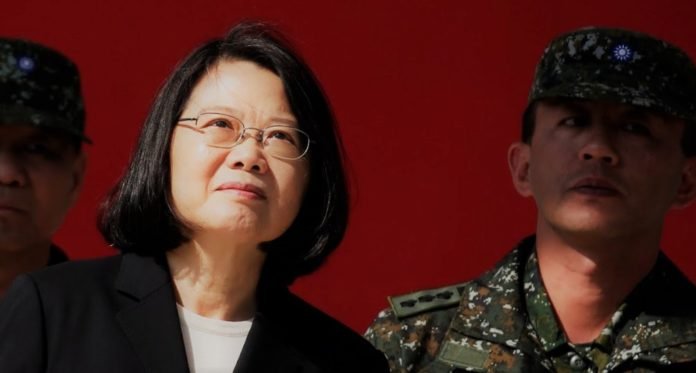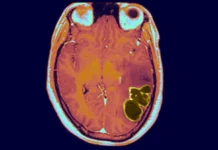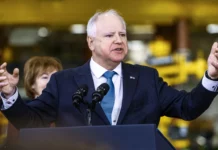China Warns Against Potential Meeting Between US House Speaker and Taiwan’s President
China cautioned that it would retaliate if House Speaker Kevin McCarthy met with Taiwan’s President Tsai Ing-wen during her transit through the United States, labeling the meeting a “provocation.” Tsai, undeterred by external pressure, insisted that her government would continue to engage with the world.
Taiwan’s President’s Trip Amid Rising Tensions Between the US and China
Tsai’s journey takes place as Beijing establishes diplomatic relations with Honduras and receives a former Taiwanese president. These events highlight Taiwan’s precarious status and escalating tensions between the US and China. Tsai, maintaining a calm and confident demeanor, stated that Taiwan would not yield or provoke and would continue on its path towards freedom and democracy.
Tsai’s US Transit and Potential Meeting with McCarthy
Tsai is scheduled to visit New York, Guatemala, Belize, and Los Angeles before returning to Taiwan on April 7. During her stop in Los Angeles, she may meet with McCarthy and other Congress members, although this has not been officially confirmed. China’s Taiwan Affairs Office strongly opposes such a meeting, as it would be perceived as supporting Taiwan’s independence and violating the one-China principle.
US-China Relations and Taiwan’s Status
Taiwan’s status is a sensitive issue in US-China relations, which have grown increasingly complicated since 2019. Lev Nachman, a political scientist and assistant professor at National Chengchi University in Taipei, stated that seemingly minor actions now carry more significant implications. As a result, China may respond more strongly than usual to Tsai’s US transit.
Competing Visits and Diplomatic Changes
Former Taiwanese President Ma Ying-jeou’s visit to China, a first for a current or former president since 1949, highlights the contrasts between Taiwan’s governing parties and their stance on relations with China. Ma’s Kuomintang party favors closer ties with China, while Tsai’s Democratic Progressive Party opposes unification with China and supports Taiwan’s sovereignty.
Taiwan’s Diplomatic Challenges
Honduras’ decision to establish diplomatic relations with Beijing and sever ties with Taipei has left Taiwan with only 13 formal diplomatic allies, including Guatemala and Belize. This development increases the importance of Tsai’s trip to these two countries. However, Taiwan’s geopolitical security relies more on its partnerships with the US, European Union, Japan, and other international backers with which it has no formal ties.
Significance of Tsai’s US Transit and Possible Outcomes
Tsai’s transit through the US is considered more consequential than Ma’s visit to China. Beijing will closely monitor any interactions and statements made during her transit. While Tsai is known for her pragmatic and measured public remarks, US lawmakers who may meet with her could be less predictable.
Jessica Chen Weiss, a professor of China and Asia-Pacific studies at Cornell University, warned that aggressive rhetoric from US representatives might provoke China into taking action. She advised that the US should continue to support Taiwan’s self-defense and strengthen its military presence in the Asia-Pacific region, but avoid provocative rhetoric.








